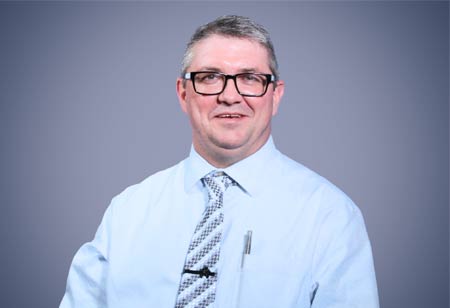As I reflect on my career journey, it's clear that my path into the behavioral health field has been shaped by a combination of personal experience and a commitment to making a meaningful impact. My journey began in 1998 when I completed my undergraduate degree in psychology. However, my connection to the field goes beyond academics—I am also a person in long-term recovery from substance use disorder (SUD).
Early in my career, I entered the field as a technician in a treatment center, setting the stage for a multifaceted professional journey. Over the years, I have worn various hats, transitioning from roles such as a case manager and intake specialist to a therapist. As the landscape of SUD treatment evolved, especially with the advent of Medicaid reimbursement, I recognized the need to enhance my qualifications to stay relevant and influential in the field. This realization led me to pursue a master's degree in clinical mental health counseling, emphasizing neuroscience.
"Patience is key—change is slow, and the process of supporting individuals through significant life changes requires understanding and perseverance."
Since then, my career has taken a more administrative turn, culminating in my current role as the Vice President of Addiction Services at Seven Counties Services. In this capacity, I oversee the entire division, including inpatient and outpatient care levels. My responsibilities extend to supporting community-based services and transitional housing programs and ensuring a comprehensive continuum of care. Despite the shift toward administrative roles, I continue to find joy in training initiatives, having developed ethics training and revamped an American Society of Addiction Medicine (ASAM) training, with more projects in the pipeline.
Addressing Challenges
The addiction services field is not without its challenges, and Seven Counties Services is actively working to navigate and address them.
The ongoing opioid crisis remains a critical concern, with a shift in the types of opioids posing new threats, particularly the lethal nature of fentanyl. Our challenge is to engage individuals in services rapidly to prevent overdose fatalities.
Another challenge is the introduction of new interventions, such as psychedelic treatments. These treatments raise questions about the level of research and funding needed to ensure their efficacy and safety. Financial challenges also persist, with some services not being Medicaid reimbursable, relying on grant funding that is often temporary. Additionally, reconciling treatment methods with grassroots recovery systems, like 12-step programs, continues to be a complex area of development.
Trends and Innovations
As we navigate these challenges, several trends and innovations are shaping the future of addiction services. The continued use of medication-assisted treatment for opioid use disorder is a focal point, as is the integration of psychiatric care into SUD treatment. I believe there's ample room for growth in this area, especially in Kentucky and surrounding states.
Additionally, licensure for professionals in the SUD treatment field remains an ongoing struggle, with discrepancies across states. My vision is for a more uniform system that aligns with other mental health professions, eliminating barriers for professionals.
Advice for Emerging Professionals
To young and emerging professionals entering the field or considering it, I offer some advice based on my experiences. Patience is key—change is slow, and the process of supporting individuals through significant life changes requires understanding and perseverance. Cultivate a supportive team around you, seek supervision, and maintain a growth mindset. Never stop learning and exploring new areas of study, as maintaining a student mindset will contribute to long-term satisfaction in this challenging yet rewarding field.



